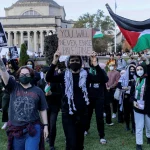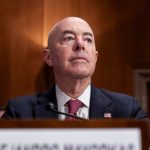By Gregg Jarrett. Media: Fox News
In an epic miscalculation that backfired spectacularly, prosecutors in the Manhattan hush money trial of Donald Trump called Hope Hicks to the witness stand. The moment cross-examination began, their misbegotten case against the former president began to collapse.
Hicks, who served as press secretary during the 2016 presidential campaign, explained that Trump’s motive for suppressing salacious stories was to protect his wife, Melania. “Absolutely…I don’t think he wanted anyone in his family to be hurt or embarrassed about anything on the campaign. He wanted them to be proud of him.”

The account by Hicks demolishes District Attorney Alvin Bragg’s primary claim against Trump that he paid porn star Stormy Daniels for her silence with the intent to benefit his campaign and, thereby, influence the election by “unlawful means.” To the contrary, it nicely corroborates the findings of a federal investigation that no crimes were committed, or campaign finance laws broken because there was another purpose for the non-disclosure agreement that Daniels signed.
Like the prosecution witnesses before her, Hicks disparaged Bragg’s planned star witness, Michael Cohen, Trump’s one-time personal lawyer. “He used to like to call himself Mr. Fix-It, but it was only because he first broke it.” Ouch! But that denigrating remark is tame compared to the other derisive comments that have been leveled thus far at the insufferable Cohen, who is a convicted liar who went to prison.
It was foolhardy for Bragg’s legal team to call Hicks. A rank amateurish mistake. Her testimony was redundant and unnecessary. But under the theory that no dead horse will be left unbeaten, prosecutors seemed determined to have her tell the jury what they already knew.
If polling data is correct, Americans are offended by this big top spectacle. They resent seeing the leading candidate for president taken off the campaign trail and tied up in court by a partisan enemy.
Hicks confirmed that Trump was aware that Cohen paid off Daniels to end what can fairly be described as aggressive blackmail demands. When the election drew near, Daniels ratcheted up her greedy scheme to profit from Trump by threatening to go public about a supposed affair, which he denied. Not incidentally, she renounced the purported tryst. Then, in a head-spinning maneuver, she recanted her repudiation.

The payment to Daniels, regardless of its intent, proved to be a waste of money. While the National Enquirer never published her story, Hicks testified that other news outlets did so in advance of the election. In the end, it didn’t seem to matter much to voters who were more invested in policy ideas rather than personal issues. The unlikeable Hillary Clinton was also a factor.
It is worth repeating that the jury already knows all about the Daniels transaction. It has been the subject of endless discourse by other witnesses since the trial commenced. This makes Hicks’ testimony superfluous, and it proves nothing. Of course, Trump knew about the payments. He doesn’t contest it. He says he followed his lawyer’s advice, who handled everything. So what?
The payments made were not illegal. Non-disclosure contracts in exchange for silence are not unlawful. Killing negative stories violates no statutes. More to the point, it is not a crime for Trump to know about a non-crime. That would be a senseless syllogism.
So, where exactly is the crime? To quote a memorable line from “Shakespeare In Love,” “I don’t know…it’s a mystery!”
There is, however, no mystery behind Alvin Bragg’s politically driven prosecution of Trump. Out of thin air, the DA conjured up expired misdemeanors, dumped them into a Cuisinart, tossed in a garbage state statute that doesn’t apply to a federal election, hit the “puree” button, and then poured out an absurd concoction of faux felonies.
The only crime here is Bragg’s grotesque abuse of the law.
The legal wrangling between two lawyers who executed a legal contract on behalf of their respective clients is what attorneys do every day. It was booked in Trump’s private business records as “legal expenses” because that is what they were. Nothing was falsified, as Bragg claims in his indictment. But the D.A. wants to put Trump in prison for following his attorney’s legal advice.
Bragg must have skipped his law school class when the “doctrine of impossibility” was taught. You can’t pick an empty pocket. Nor can you unlawfully influence an election after the election. In his charges, Bragg contends that Trump falsified business records in 2017. But the presidential contest occurred in 2016, making it impossible to even complete the intended crime for which he stands accused.
This is just one of the many fallacies embedded in Bragg’s frivolous case. The alleged facts and evidence do not amount to a crime. On this basis, any objective or neutral judge would have long ago granted the defense motion to dismiss the case. Regrettably, Juan Merchan is on the bench. It’s as if he jettisoned his black robe to assume the function of a willing accessory to Bragg’s phony charges.
With Hicks on the stand, prosecutors dwelled interminably on the infamous “Access Hollywood” tape. It has no bearing on the case, mind you, except to smear Trump with irrelevant and prejudicial information. Merchan’s ruling to permit it as admissible evidence is a reversible error, just as it proved to be in the recently dismissed sex crimes conviction of Harvey Weinstein.
Bragg should turn himself in to authorities for impersonating an honest lawyer. To fulfill his campaign promise to nail Trump, the D.A. has manipulated the law and mangled evidence to engineer a wrongful conviction. He targeted Trump in a textbook case of selective prosecution. This is an affront to the principles of fairness and equal justice.
If polling data is correct, Americans are offended by this big top spectacle. They resent seeing the leading candidate for president taken off the campaign trail and tied up in court by a partisan enemy. Bragg’s legally anemic case only accentuates the injustice.
There is no mistaking the boomerang effect here. Voters see this for precisely what it is: a pathetically weak case designed to damage Trump politically to the benefit of President Joe Biden’s reelection chances.
Let’s hope the jurors see that, too.



























































































